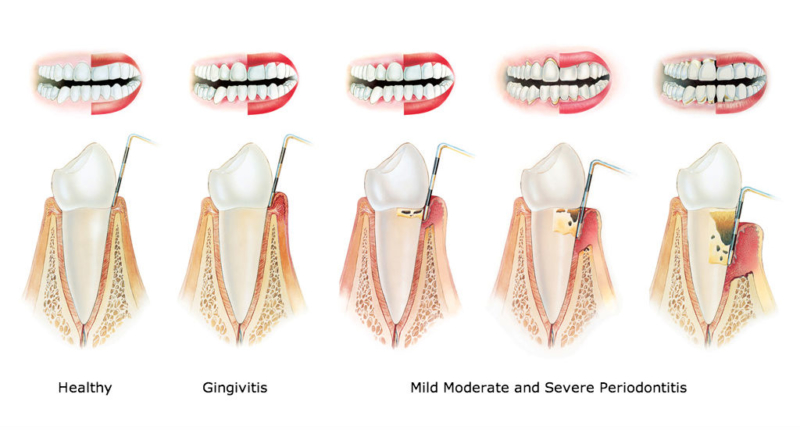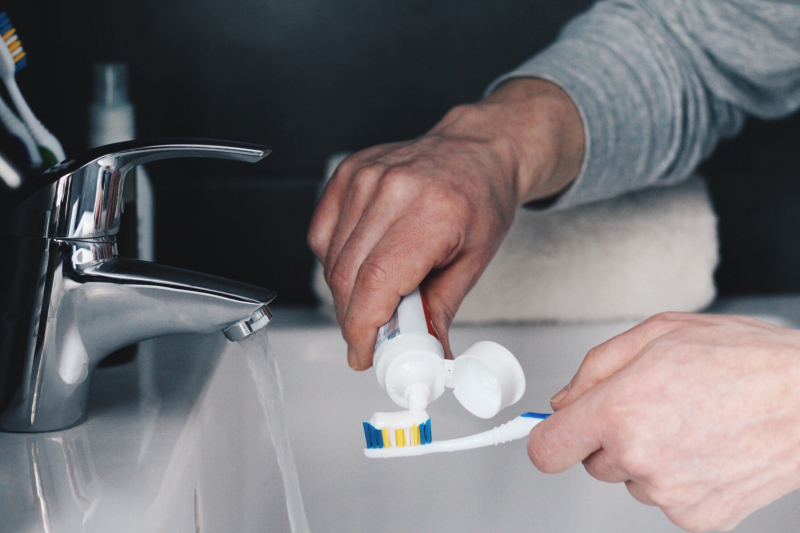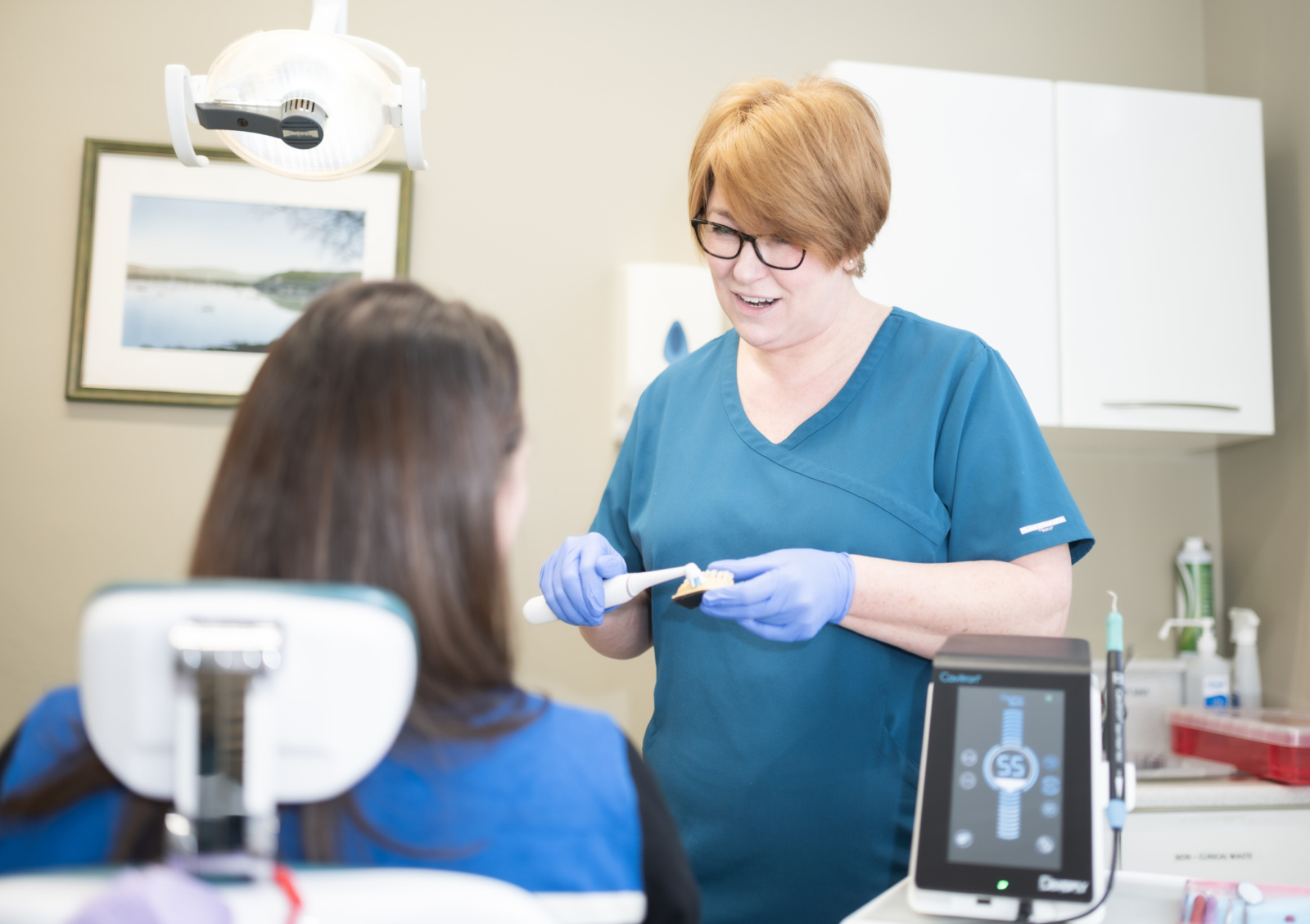Why visit a hygienist?
If your dentist recommends a hygiene appointment, this isn’t something to worry about, and it’s certainly not about charging you for services you don’t need.
A hygienist can play an important role in preventing some common dental health issues, including gum disease.
A deep clean, known as professional mechanical plaque removal, can set you on the right path. Regular visits and good dental maintenance in-between can help you to avoid or prevent further deterioration in your oral health.
Your hygienist will also equip you with tips on caring for your teeth and gums, including brushing techniques… you’d be surprised how many people get it wrong.
What does a hygienist do?
However carefully you brush and floss, you can still miss areas, even with a fancy electric toothbrush.
Your hygienist uses specially designed tools to clean your teeth, even below the gum-line, giving you a more thorough clean than you could ever manage at home.
Depending on your individual needs, your hygienist may also:
- Apply topical treatments to your dental surfaces.
- Offer dental care advice and demonstrations.
- Polish your dental surfaces, leaving them clean and bright.
When you visit, ask your hygienist about AIR-FLOW, a fast and effective stain removal treatment using water, compressed air and fine powder to clean and polish your teeth, without harsh chemicals.
Working together, your dentist and hygienist can help you to achieve and maintain good oral health, monitoring any changes and addressing issues before they become bigger problems.
Spotting the signs of gum disease
Gum disease, commonly known as gingivitis, is characterised by swollen or infected gums, and bleeding when you brush or floss. Left untreated, it can eventually lead to a condition called periodontitis, which is much more serious.
Periodontal disease affects the part of you mouth that holds your teeth in place – the alveolar bone and periodontal ligaments. This can involve small localised areas or the whole of your mouth. Deterioration and shrinking of this bone can weaken your teeth and even cause them to fall out.

Your dentist will be looking for these early signs, but prevention is certainly better than cure, which is why many people make a dental hygiene visit part of their care routine. It’s often possible for us to arrange a dentist and hygienist appointment on the same day, back-to-back, so you don’t have to make additional visits.
How much is a hygiene appointment?
We offer Denplan options helping you to spread the cost of your treatments, or you can pay as you go if you’d prefer. Our costs are detailed below:
Scale and polish
Private patients from: £62.50
With Denplan Essentials from: covered
With Denplan Care from: covered
Intensive multi-visit scale
Private patients from: £93.75
With Denplan Essentials from: £94.38
With Denplan Care from: covered
Direct-access appointments: £110.25
AIR-FLOW (including scale and polish): £93.75
A few tips for effective brushing
To maintain good dental health, it’s important to brush and floss your teeth twice each day – once in the morning, and again before bed.
- Remember to floss or use an interdental brush, helping you to clean all the nooks and crannies between your teeth.
- It’s more effective to dry brush with toothpaste. Avoid wetting your toothbrush before you start your routine.
- Brush in circular motions, rather than scrubbing back and forth. It’s better for your gums.
- Use a tongue cleaner to remove bacteria and freshen your breath.
- Don’t rinse after brushing. You’ll wash away the film of fluoride which can help to protect your teeth throughout the day.
And, of course, make sure you keep up with your routine dental check-ups.

Book for a more complete smile
Now you’ve had a chance to read about the treatments we can offer at White Gables Dental Practice, why not get in touch?
